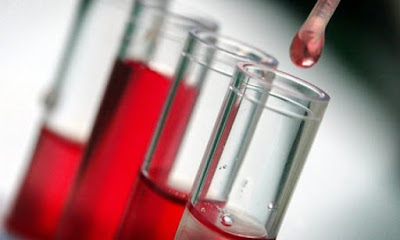Hypoproteinemia ICD-10, Symptoms, Causes, Treatment
Hypoproteinemia is the reduction in total protein concentration in plasma or serum that is lower than expected according to age, gender, physiological. Hypoproteinemia may result from a decrease in albumin and globulin concentration or a decrease in both albumin or globulin concentrations. Some basic types of hypoproteinemia include
Diet plan may also provides beneficial results e.g eating products that are rich in amino acids improve protein synthesis. Examples of such diet include protein shakes, milk, egg white, dates, red meat etc.
Following code is used for Hypoproteinemia in ICD-10
E88.09--Other disorders of plasma-protein metabolism, not elsewhere classified--Billable
- Panhypoproteinemia: It includes reduction in both types of proteins e.g hypoalbuminemia and hypoglobulinemia
- Hypoproteinemia: It includes reduction in one type of protein e.g hypoalbuminemia and normal globulin concentration
- Hypoproteinemia: It includes reduction in one type of protein e.g hypoglobulinemia and normal albumin.
Hypoproteinemia may be caused by protein synthesis reduction and seen in malnutrition and chronic liver disease. Protein malnutrition deprives the hepatic system for production of plasma proteins and is a common problem in hospitalized patients. In chronic liver disease, the protein synthesis machine is impaired, which means hypoproteinemia. Protein increased catabolism is observed in various inflammatory and neoplastic conditions.
Excessive loss of protein may occur in the kidneys, the gastrointestinal tract, or the skin. Examples include nephrotic syndrome, inflammatory bowel disease, extensive burns, and any severe exudative process. The most serious loss can be seen in nephrotic syndrome where number of plasma proteins, in particular albumin, is passed through the glomeruli into the urine. Changes in total serum protein may cause changes in albumin, globulin, or both. For this reason, it may be useful to determine the ratio of the concentration of albumin to the concentration of globulin.
Hypoproteinemia Symptoms
Sign and Symptoms associated with hypoproteinemia may vary depending upon underlying cause. However, some commonly reported symptoms of hypoproteinemia are edema, tachycardia, asthenia, weight loss, diarrhea and polyuria. Some patients may also feel melena, ascites, rashes on body, swelling in extremities and tingling.
Hypoproteinemia Causes
Some common causes that are associated with Hypoproteinemia are as follows
- Vasculitis
- Hepatic impairment
- Protein losing enteropathy
- Ulcerative colitis
- Enteritis
- Granulomatosis
- Severe infections
- Drug induced Hypoproteinemia
- Pyelonephritis
- peritonitis
- Pleuritis
- Chronic heart failure
Hypoproteinemia Treatment
Treatment of hypoproteinemia is mainly consist of bolus infusion of protein in case of severe protein loss especially seen in chronic kidney disease patients. However, it is important treatment underlying cause along with bolus protein infusion to limit its further loss. If you have mild hypoproteinemia then your health care provider might recommend you tablets that increases protein synthesis in the body like ketosteril etc.
Hypoproteinemia ICD-10
Following code is used for Hypoproteinemia in ICD-10
E88.09--Other disorders of plasma-protein metabolism, not elsewhere classified--Billable
Hypoproteinemia ICD-10, Symptoms, Causes, Treatment
 Reviewed by Simon Albert
on
September 04, 2019
Rating:
Reviewed by Simon Albert
on
September 04, 2019
Rating:
 Reviewed by Simon Albert
on
September 04, 2019
Rating:
Reviewed by Simon Albert
on
September 04, 2019
Rating:












